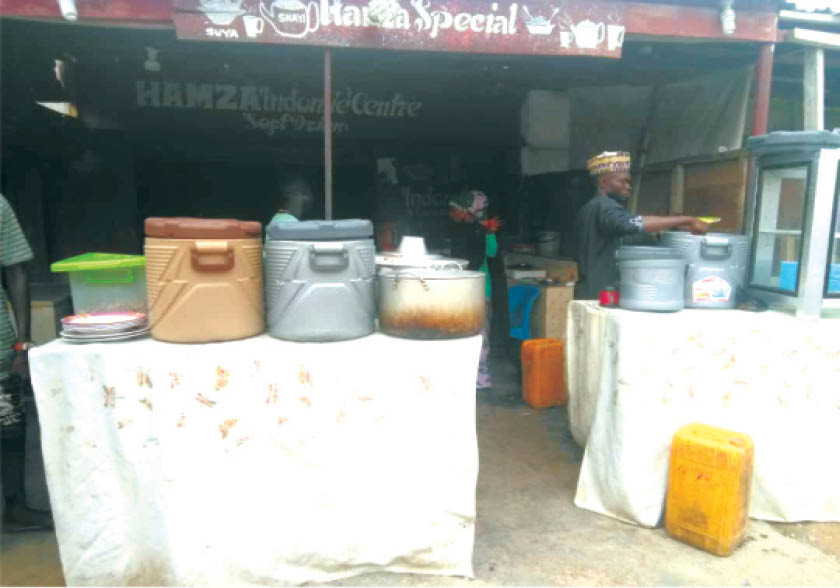It was a few minutes to 6pm and the factory workers around Gandu layout were winding up for the day, Fa’iza Abdul, a college student, who sells food to labourers in the area, felt reluctant to go home because she did not make appreciable sales that day.
Her worry was that there was nothing she could take home that would sustain her family for two days before the next lockdown-free day.
She sat haggard and worried over the buckets of her leftover food in a sombre mood with her chin resting on her left hand, engrossed in thoughts about her future and that of her younger siblings, who all depended on the little business for everything including their studies.
In total resignation to her fate, Fa’iza left and could not come back for almost a week, and when she eventually did, all she had for sale was just moi-moi and waina, a popular snacks in the northern part of Nigeria.
Several observations by Chronicle revealed that Fa’iza’s experience is similar to many small-scale businesses in Kano metropolis during the lockdown occasioned by coronavirus pandemic.
Speaking to Chronicle, Fa’iza said they were unable to prepare different varieties of food as her mum used to do before the outbreak of the pandemic for lack of capital because all the savings they had were used in taking care of the immediate needs of her family.
According to her, she had to borrow from close relations before she was able to start the moi-moi business.
“Our experience under the lockdown was terrible. Being a daily income earner, you have to come out every day before you could get what to eat”, she confessed.
Fa’iza could not hide her emotions as she expressed fears about her educational pursuit and that of her younger siblings in the face of the dying business.
“We depend on this business for everything including our education. Under the lockdown, because nobody goes out, the little capital we had for the business was used up to sustain the family. Now I don’t know what will happen if schools resume,” she said.
Before the outbreak of COVID-19 in Kano state and eventual lockdown of business activities, Fa’iza used to come around to help her mother, a food vendor, in serving customers. Their food stand was always a busy hub for company workers around the area.
Malam Hamza Abdullahi, another food vendor at Karkasara quarters, said he had lost 70 percent of his business to COVID-19 lockdown.
He said both the capital and customer base of his eatery have dropped significantly and had to borrow to raise funds to start up the business altogether again.
“This lockdown has affected not only the small scale businesses but even the individuals, the customers do not have money and once they don’t have money our businesses will not move,” Abdullahi said.
He appealed to the government at both state and federal levels to come up with a deliberate plan in order to directly assist small scale businesses to come back to life in the post COVID-19 era.
Similarly, a street hawker, who sells oranges and other fruits at Kofar Ruwa market, said he has ‘eaten’ virtually all his capital during the lockdown period.
Malam Usman Kyauta, who is in his 40s, said as a family man, “one can’t keep his family hungry even when markets don’t open. I exhausted all I have during the period, now I have to start all over.”
He added that though markets in Kano had reopened partially, the daily return he was making was not sufficient when compared to life before the lockdown.
Like many other SMEs, Kyauta now relies on small loans from his wholesalers.
“My capital is not more than N20,000; if I could get assistance from the government, I will easily recover. Small businesses like mine are very essential to the economic development of the country,” Kyauta concluded.
Ibrahim Danladi, who relies on selling recharge cards around Yankura and Sabon Gari markets in Kano metropolis, re-emphasised the lamentation that cut across small scale business owners.
He said like his colleagues, his capital was no more.
“We are now running on credit,” he added.

 Join Daily Trust WhatsApp Community For Quick Access To News and Happenings Around You.
Join Daily Trust WhatsApp Community For Quick Access To News and Happenings Around You.


